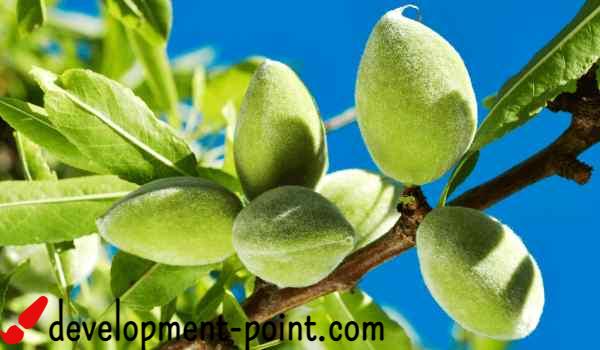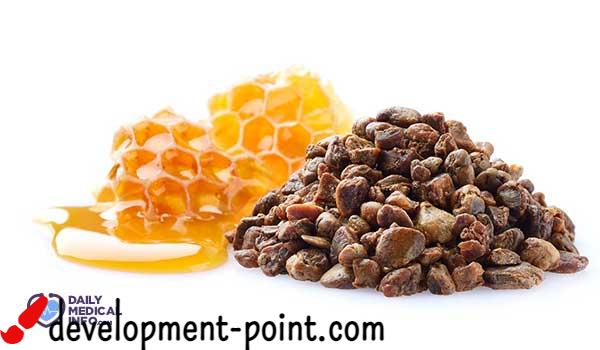Cleaning arteries and blood vessels in natural ways
Heart disease is one of the most common causes of death in the world. As high levels of cholesterol in the blood may stimulate the formation of plaque in blood vessels and arteries. Which may increase the risk of heart attack and stroke. This requires cholesterol patients to take care of their diet and lifestyle in order to protect the health of the heart and arteries. So now learn about the best ways to clean arteries and blood vessels in natural ways.
Causes of clogged arteries
Plaques, or plaques, form when cholesterol sticks to the artery wall. This prompts the body’s immune system to send white blood cells to trap cholesterol. Which then turns into foam cells that produce more fat.
Hence the increase in inflammation, and the formation of plaques on top of cholesterol. Which may lead to clogged arteries. Which can cause coronary heart disease, and angina pectoris. This requires cholesterol to be absorbed from the inside in order for the plaque to shrink and blood to flow through the arteries.
risk factors
The risk of developing clogged arteries may increase in the following cases:
- High levels of harmful cholesterol
- Hypertension
- Having diabetes
- Suffering from obesity and overweight
- Bad diet
Treatment of clogged arteries
It is difficult to remove plaque from the arterial walls without invasive treatment. However, some simple procedures can be followed in order to prevent the formation and development of plaque in the future. Among the most important of these procedures:
- Doing physical activity such as walking
- Excess weight loss
- stop smoking
- Follow a healthy diet
The importance of diet in treating clogged arteries
Diet is an essential factor in maintaining a healthy heart and arteries. As some foods may help clean blood vessels and arteries, such as choosing foods that contain unsaturated fats such as nuts, olives, and fish.
While eating some foods may increase the risk of heart disease and atherosclerosis. This is when relying on eating foods that contain saturated fats. Sources of saturated fat include fatty meats, dairy products, and processed foods.
Mediterranean diet
The Mediterranean diet is considered one of the healthiest diets in the world in order to maintain heart health and clean arteries and blood vessels from fat.
Studies conducted on participants between the ages of 55 to 80 years indicated that following a Mediterranean diet, which contains olive oil, vegetables, fruits, fatty fish, and nuts, has contributed to reducing the risk of heart disease. by 30%.
And to start your diet on the way of the Mediterranean diet, You can follow the following:
- Use extra virgin olive oil for cooking instead of using butter.
- Eat more vegetables by eating them on their own or adding them to your cooking recipes.
- Consume whole grains instead of using bread and pasta.
- Reduce the use of high-fat dairy, and replace it with skimmed milk.
- Eat plenty of fruits and vegetables daily.
- Add some nuts and seeds to the side dishes.
- Eating fish and poultry is more common than red meat in the Mediterranean diet.
Foods that help clean arteries and blood vessels
Foods that may help treat and prevent clogged arteries include:
Oats
Oats contain soluble dietary fiber, which has been shown to be effective in lowering bad cholesterol levels. Which makes oatmeal a good choice for those suffering from clogged arteries or for cleaning arteries and blood vessels.
Oatmeal contains antioxidants that help reduce inflammation and inhibit adhesion molecules, which may help prevent clogged arteries.
Some studies have found that people who regularly ate oatmeal diets had lower levels of inflammation and harmful cholesterol levels compared to those who did not eat oats.
Beans
Beans are a rich source of dietary fiber. Black beans also contain three times the amount of fiber found in one cup of oats. Eating beans is a good way to control cholesterol levels, and thus help treat clogged arteries and reduce the risk of infection.
Some studies have found that diets that contained one portion of beans per day, approximately 130 gm, were associated with the possibility of significantly lowering cholesterol levels than other diets.
This is in addition to the effectiveness of diets rich in beans in lowering blood pressure levels, improving arterial function, and reducing the risk of type 2 diabetes.
berries
One of the benefits of berries is that it contains a lot of dietary fiber, vitamins, and minerals. It also has antioxidant and anti-inflammatory properties, which may help improve heart and arteries health, by reducing inflammation and lowering harmful cholesterol levels.
eating fish
Oily fish is a rich source of essential nutrients such as omega-3 fats, which may help reduce the risk of atherosclerosis.
One study found that the risk of clogged arteries increased for people who ate less fish than those who ate fish for one or two servings per week. Of fatty fish:
tomato products
Eating tomatoes may help clean blood vessels and arteries. Where tomatoes and their products contain lycopene, which helps reduce inflammation, lower harmful cholesterol levels, and thus reduce the risk of clogged arteries.
As I found a study that was conducted on 40 people. Eating cooked tomatoes with olive oil had a greater effect on reducing inflammation compared to using raw tomatoes and regular tomato sauce. This may provide greater protection against atherosclerosis.
The benefits of onions for the heart
Studies have found that eating more amounts of onions was associated with a lower incidence of deaths from clogged arteries. Scientists believe that this is due to the fact that onions contain sulfur compounds, which may help prevent vascular inflammation and platelet aggregation in the blood. Therefore, following a diet rich in onions may protect the health of the heart and arteries.
Citrus fruits
Citrus fruits are a rich source of vitamins, minerals, and antioxidants such as flavonoids. Citrus flavonoids can help reduce inflammation and prevent free radicals from oxidizing harmful cholesterol, which is associated with atherosclerosis and its development.
flaxseed
Flaxseeds contain many dietary fibers, vitamins, and minerals such as calcium and magnesium. It also contains anti-inflammatory compounds, which helps lower cholesterol levels, thus protecting the heart and arteries.
The benefits of nuts for the heart
Nuts are a rich source of fiber, protein, and healthy fats. In addition, nuts and seeds contain many minerals and vitamins. This may help improve blood vessel functions, lower blood pressure, reduce harmful cholesterol levels, and reduce blood sugar levels, thus significantly protecting against the risk of diabetes, heart disease, and atherosclerosis.
So be careful to avoid wrong healthy habits, and follow healthy diets, which may help you clean the arteries and blood vessels, and greatly reduce the risk of clogged arteries.

